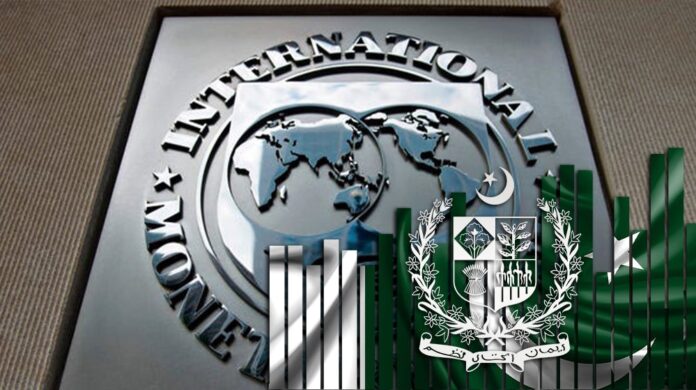Opening technical-level talks with Pakistani authorities on Thursday, the International Monetary Fund (IMF) raised concerns over the Rs1.2 trillion shortfall in tax revenue for fiscal year 2024-25, despite the imposition of additional taxes worth Rs1.3 trillion and two revisions of the target.
As per reports, the IMF review mission kicked off its work simultaneously in Karachi and Islamabad, without the customary opening meeting with Finance Minister Muhammad Aurangzeb, who is currently on a visit to the United States. The meeting with Aurangzeb, originally scheduled for September 25, has now been rescheduled for Monday, September 29, due to his absence.
Two separate IMF teams—one focusing on monetary policy and the other on fiscal policy—are engaging with the State Bank of Pakistan and federal government agencies.
The mission is expected to remain in the country for approximately two weeks, during which it will hold forward-looking discussions and press authorities to accelerate efforts in meeting targets set for December 2025.
During the discussions on Thursday, the IMF inquired why the FBR’s final collection for FY2024-25 amounted to Rs11.74 trillion, lower than the original target of Rs12.97 trillion. Officials attributed the gap to unrealized recoveries from pending court cases, amounting to Rs250 billion.
The discussions also delved into issues such as the National Finance Commission (NFC) distribution, fiscal developments, pending litigation, foreign exchange reserves, and the policy rate.
Pakistan shared plans to revise the NFC Award formula, which may reduce the population-based share for provinces from 82% and introduce weightage for tax performance and low population density.
The government also proposed devolving the Benazir Income Support Programme (BISP) to provinces to enhance their revenue mobilization.
On fiscal developments, Pakistan informed the IMF that total government expenditure increased to 21.4% of GDP in FY2024-25, compared to 19.5% the previous year. The fiscal deficit exceeded Rs6.1 trillion, although provinces managed to meet IMF requirements by posting surpluses. Federal net revenue stood at Rs9.946 trillion, with total expenditure reaching Rs17.036 trillion. Debt servicing accounted for Rs8.9 trillion, including Rs7.997 trillion spent on domestic interest and Rs890 billion on external loans. Defence spending amounted to Rs2.193 trillion.
Provinces received Rs6.854 trillion from the divisible pool, with Punjab posting a surplus of Rs348 billion, Sindh Rs283 billion, Khyber Pakhtunkhwa Rs176 billion, and Balochistan Rs113 billion.
The IMF mission is expected to receive further updates on flood damages, although the government has yet to finalize these estimates. Pakistan’s officials hope the IMF will allow flexibility in the primary budget surplus and fiscal deficit targets to accommodate flood-related expenditures, without raising new taxes or cutting development spending.
The government has struggled to meet several key end-June 2025 targets, including revenue collection by the Federal Board of Revenue (FBR), retail taxation, and provincial cash surpluses. Additionally, the governance and corruption diagnostic report remains pending, with its associated action plan still not published, which hampers the progress on state-owned enterprise reforms.
While provincial legislatures have enacted agriculture income tax laws, their implementation and collection remain uncertain, especially in flood-affected areas of Punjab and Sindh. This uncertainty may further hinder the government’s ability to provide the required support to flood victims.
On a positive note, Pakistan has nearly met all the quantitative performance criteria for the end-June 2025 targets. However, it continues to fall short on certain indicative targets and structural benchmarks, which could slow down progress in the coming months.
The IMF review, which is conducted twice a year under Pakistan’s $7 billion Extended Fund Facility and $1.4 billion Resilience & Sustainability Facility, will assess both past performance and future commitments. If the review concludes successfully, Pakistan could receive a disbursement of approximately $1 billion (760 million IMF special drawing rights) by the end of next month.




